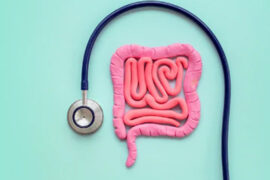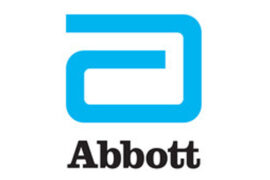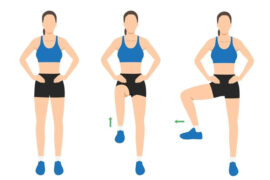Weight loss and fat loss are often used synonymously. But have you ever been curious about if there is any difference between them?
The answer is here!
One of the most familiar goal trends within the fitness industry is weight loss. Lots of people around the globe suffer from excess weight, and while attempting to shed those extra kilos and to get in shape, people go through trial and error methods of dieting and exhaustive workouts.
But the point is that do you really want to lose weight? I mean, what if you really want to lose fat, not weight?
At sixes and sevens?
Well, while both weight and fat loss are vital in their own ways, the terminology is often used interchangeably. But if you ponder upon the technicality, then you’ll realize a great difference. Therefore, we turned to an expert to unravel it all for you.
Dr Prachi Jain, Dietician at CK Birla Hospital, Gurgaon informs- “Weight loss refers to the reduction in the overall body weight, that is, from muscle, fat, water. However, fat loss indicates loss in subcutaneous fat loss (fat below the skin) and visceral fat loss (fat in the abdomen or around the organs).”
 But on grounds of the confusion, most people tend to work out with the motive of fat loss but end up losing weight instead. Certainly, they are in better shape, but not necessarily fit.
But on grounds of the confusion, most people tend to work out with the motive of fat loss but end up losing weight instead. Certainly, they are in better shape, but not necessarily fit.
WHAT IS WEIGHT LOSS?
Weight loss means a decrease in your overall body weight from muscle, water, and bad losses. In simple words, it relates to the net drop in the overall kilo weight. There are several things that can influence weight fluctuations on a quotidian basis, such as hormonal imbalance, varying sodium intake, different amounts of dietary fiber, and food. Therefore, weight loss takes place when you consume fewer calories than you burn, by conforming to a workout regimen as well. Weight loss is an arbitrary term and can mean anything that causes you to weigh less, such as:
– Water
– Muscles
– Glycogen
– Fat
If layman’s terms: Weight loss = Water + muscles + glycogen + fat
WHAT IS FAT LOSS?
It means weight loss from fat and it’s a more specific and healthful goal in comparison to weight loss. A percentile and specific decline in body fat level is perceived as fat loss. Actually, fat loss comprises of losing weight while maintaining as much muscle mass as possible, which will enable you to look more toned and get that fitter look. To mainly lose fat, you need to prioritize strength or resistance training so you don’t put on muscle, you build muscles, but all with proper nutrition.
So, in simply words: Fat loss = Reduction or burning of stored body fat.
WHAT THEN IS THE DIFFERENCE BETWEEN THE TWO?
Weight loss incorporates water and muscle loss which may be perilous to health. On the contrary, fat loss can help alleviate the risk linked with chronic diseases, inflammation, reduce muscle mass loss and aid you maintain the loss as well. In addition, we can lose body fat by cutting down calories just like with weight loss but the quality of food we eat for fat loss is more vital and fat loss cannot be accomplished along by diet however weight loss can.
Moreover, unlike weight loss, fat loss cannot be measured using a weighing scale.
SO, WHAT IS THE MORE HEALTH-GIVING OPTION FOR YOU?
The answer is that – it depends!
Both assist you to shed kilos and fit in your old clothes. Nevertheless, if we compare from the point of view of health, latter is far better than weight loss.
Dr Jain states- “Healthy weight loss happens with a healthy mind and a healthy body. You might have heard about how people want to achieve inch loss and weight loss. However, latter is healthy weight loss because as per studies the higher percentage of visceral fats leads to higher chances of comorbidities like obesity, diabetes, cardiovascular diseases (CVD), etc. An ideal Body Fat Percentage (BFP) is 10-20% in males & 18-28% in females.”
Therefore, maintaining a healthy body fat percentage can aid lessen your risk of these diseases and ameliorate your mental health and overall wellbeing. Conclusively, Dr Jain prescribes following a low fat, protein-rich diet along with sufficient fiber intake to lose fat and gain muscles.
Disclaimer:
The information contained in this article is for educational and informational purposes only and is not intended as a health advice. We would ask you to consult a qualified professional or medical expert to gain additional knowledge before you choose to consume any product or perform any exercise.







